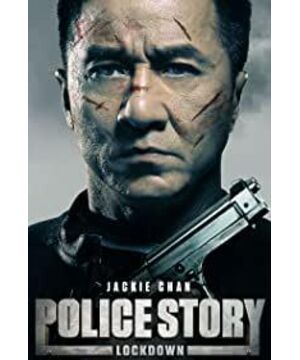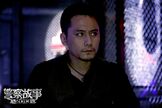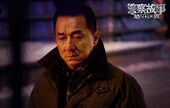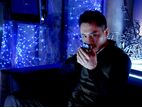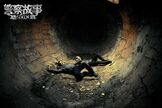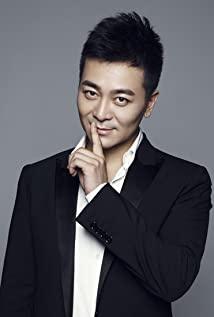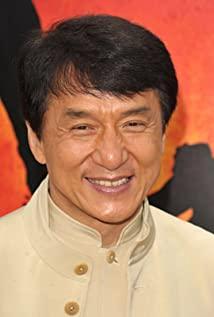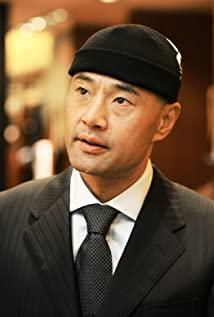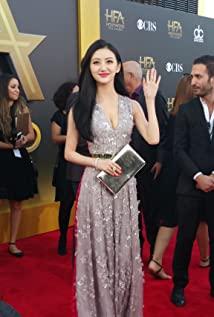It has been a long time since I described how I felt after watching a certain film. Sometimes I want to write a few sentences, but I can't describe it because my heart is messy. Writing really has to move forward according to your own state of mind. Recently, the feeling of unhappiness has intensified, but my heart has become more and more calm. Sometimes I think, even if the storm really comes, what can I do? Don't you have to go head-to-head? What can I do if my head is broken and bloody, as long as my heart is magnanimous, as long as I have no complaints and no regrets.
"Police Story 2013", a classic series of movies that accompanied him growing up. A police story is a police story, but it doesn't seem like a police story. The previous "Police Story" just thought it looked good, and there was no way to talk about how it was really good. It's just that it has been with us for so many years, and there will always be such a kind of thinking about it.
The "Police Story" series has finally come to the mainland. The police in "Police Story" have finally been replaced by mainland police. The police in "Police Story" are finally more like an elder around us. Yes, although the police story this time still continues the style of "Police Story", the police here are more humane and down-to-earth. Like I said earlier, he was very close to us, probably right next to us. As audiences, the story of a character who may be within our reach is bound to resonate with us even more.
This policeman is so flesh and blood, I must thank Ding Sheng, who is also the screenwriter and director. After watching the entire film, you can clearly feel that Director Ding Sheng has worked hard on this film. The script is quite solid, especially the portrayal of human nature. In this portrayal, I personally feel that the most outstanding thing is not the portrayal of the main characters, but the vivid and bloody display of a group of unfamiliar and familiar "audiences" through a few understated lines. This kind of foil happens all the time around us; this foil easily depicts the heart of "our"; this foil down-to-earth foils the greatness of the protagonist's identity.
For the portrayal of human nature, Ding Sheng, who is good at tough guys, is definitely a success this time, especially when the truth is revealed at the end of the film. No matter which of the characters in it, in fact, they are not wrong. As an ego, everyone thinks of their own needs. Wu Jiang, played by Liu Ye, is not a wicked and unforgivable villain. As he said in the film, many people want to do it, but few people have the ability to do it. And he did this because the environment he grew up in led him to go to extremes. But in the end, in the end, can you say he's a bad guy? The real bad guys are those eyewitnesses, and who do those eyewitnesses represent? ! But can they really be considered bad?
Still have to emphasize the director's human characterization of the film's secondary characters. As big as three witnesses, as small as a reporter who was rescued in the middle, a debt collector, and Wei Xiaofu played by Zhou Xiaoou who appeared later. Everyone has a reason for appearing on the stage, each has a complete curtain call, each has a beginning, an end, a cause and a result, and what is even more commendable is that each has such a distinct and vivid personality. Such flesh-and-blood characters who can spy out a little bit of their own stories are so vivid that they are the most favorable spokespersons for the various people we encounter every day!
What is more worthy of praise is not the action scenes of the film, nor the star of the film, nor the fact that there are flaws in the script, but the use of lens language and the careful placement of specific shots by Director Ding Sheng during the shooting process. I believe that he really did meticulous desk work before shooting, and he did it meticulously. Every shot in the film is so short, and this kind of rhythm is especially easy for the audience to maintain a vitality forever in the process of appreciation. The use of a large number of subjective lenses and the interspersed delicate empty lenses in many lenses are simply the finishing touch. If the connection of such lenses has not been carefully designed in the early stage, it is difficult to be so expressive. No wonder, the editing name of the film still reads "Ding Sheng". If it weren't for such a detailed arrangement, the appreciation would not be so hearty; without such a fine setting, the character of the characters in the film would be greatly reduced.
There is a flaw in the film, and this flaw is still in the solid script that was just boasted. The placement of Liu Ye's character on the role of her sister and boyfriend is definitely anticlimactic. However, with every film, there will always be regrets. Just like the mentality of every film and television person treating his completed works, film and television is always the art of regret.
Many times I also think about what regrets I have in 2013. Regret exists, but regret is not the main color. This year, I have been very depressed, but this year has been the most rewarding year for me. What's the point of having regrets? Jackie Chan has changed from the young Chen Jiaju in "Police Story" to the now old and strong police officer Zhong Wen. To use a line from a famous film released at the same time in this film - to fulfill others, disgust yourself! Always be ready for battle, young man!
Afterword
Jackie Chan is old, we are still young!
View more about Police Story: Lockdown reviews


